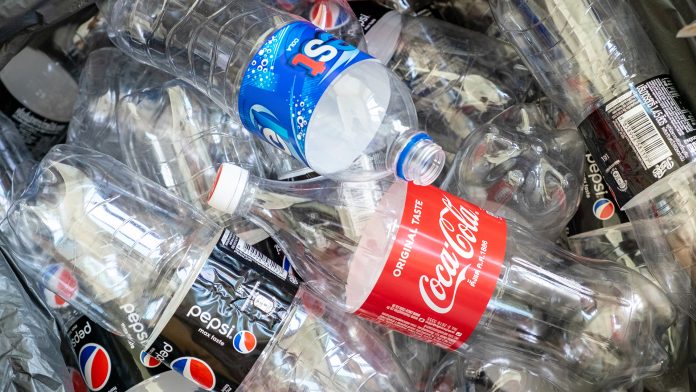A new study has revealed that just 56 companies can be traced to more than half of global branded plastic pollution.
A paper published in Science Advances has confirmed a direct correlation between plastic production and plastic pollution.
Every 1% increase in plastic production is associated with a 1% increase in plastic pollution in the environment.
The study has revealed that fast-moving consumer goods companies disproportionately contribute to the problem compared to household and retail companies.
The research is the first robust quantification of the relationship between plastic production and pollution.
56 companies responsible for more than half of branded plastic pollution
Led by scientists from universities in the US, Australia, the Philippines, New Zealand, Estonia, Chile, Sweden, Canada, and the United Kingdom, the research found that 56 global companies are responsible for more than half of all branded plastic pollution.
The Coca-Cola Company was responsible for 11% of branded waste, followed by PepsiCo (5%), Nestlé (3%), Danone (3%), and Altria/Philip Morris International (2%).
The top companies produce food, beverage, or tobacco products.
Dr Kathy Willis, Postdoctoral Fellow from CSIRO, Australia’s national science agency, said: “This research provides the first quantification of global producer contribution to branded plastic pollution. The findings suggest that single-use packaging significantly contributes to branded plastic pollution. This data can help inform ways to address plastic production and reduce plastic waste ending up in the environment.”
Break Free From Plastic data
The study used #BreakFreeFromPlastic brand audit data from 1,576 audit events across 84 countries.
Brand audits are citizen science initiatives in which volunteers conduct waste clean-ups and report the brands found based on the pollution collected.
Over the five-year analysis, more than 200,000 volunteers submitted data through 5 Gyres’ TrashBlitz append Break Free From Plastic.
Reducing plastic production
The relationship between plastic production and pollution across different waste management systems and geographies has shown that cutting production in the fast-moving consumer goods sector is a potential solution to reducing pollution globally.
With the Global Plastics Treaty at INC-4 happening this week in Ottawa, Canada, the research acts as a vital tool to support a legally binding treaty that focuses on corporate accountability and prioritises a reduction in plastic production.
Dr Lisa Erdle, Director of Science & Innovation at The 5 Gyres Institute, said: “Our study underscores the critical role of corporate accountability in tackling plastic pollution.
“We, as individuals, are not responsible for the plastics crisis; the onus lies on these 56 global companies to take decisive action. I urge world leaders at INC-4 to listen to the science, and to consider the clear link between plastic production and pollution during negotiations for a Global Plastics Treaty.”









